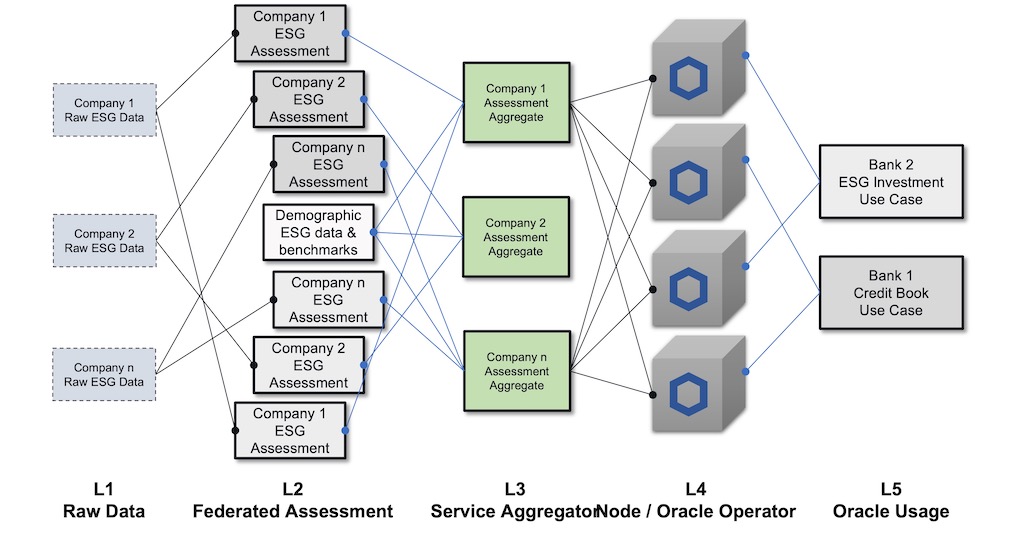ESG data is a quality and implementation bottleneck and failing to solve it will prevent us to alter our current climate change path as a society. Individual companies, regulators, NGOs and financial service provider will not be able to tackle this challenge if they don’t join forces. Let’s explore a setup using a consortia based approach and decentralized technology to solve this tough-nut problem.
The Problem
Whoever talks about ESG, the challenges of climate change in particular and its regulation in general, agrees that data is one of the greatest pain points in creating traction. Data pain points can take numerous forms but most common are the following:
- ESG data is not available at all (especially for smaller corporates)
- ESG data spans organizations and process chains
- The definition of ESG data (and metrics) is fuzzy or vague
- Every party using the ESG data tweaks and interprets
- ESG data collection and quality control are highly redundant
- Trust in ESG data is very low
The most obvious aspect of this data problem is it’s function as an excuse which in turn simply prevents all change and progress. “We don’t have the data, hence we cant measure hence we can’t improve!”
The Urgency
It feels like ages since the initial publications of the Club of Rome and even the recent global conferences like the Paris Accord. Yet a lot has started to move especially in European and US regulations and the Financial Services industry will now be treated as a catalyst and lever to influence the real economy both on the credit books as well as the investment product side of the balance sheet.
Initiatives like TCFD and the EU Taxonomy will create a momentum and the public opinion will increase the pressure to act additionally. Yet if every company every fund manager and every bank attempt to achieve something on their own, the effect will not be compound and it likely will not create sufficient impact.
Time has been wasted on lip service and technocratic discussions without producing much tangible progress. But in the same period we have seen unprecedented technological innovations that could come to our aide in solving the ESG data conundrum.
The Solution
If the individual players in both the real as well as the monetary / financial economy start to putting their small efforts together, we can create real change without having to put individual business models or people at risk.
We are calling for a European consortia to establish an ESG assessment oracle framework, which bundles many small efforts and creates an overarching consensus on how these many small pieces fall together to form a bigger and more accurate picture.

Consider the following sequence and approach:
- We do have common standards on what constitutes a “Paris aligned path”
- Every company is more or less aware on its own actions or inactions
- Sharing company level raw data allows the financial services industry to assess this data on an individual and very fragmented level
- Sharing these assessments and creating a consensus assessment across them adds to quality and reduces the workload for both companies and assessors
- Distributing this consensus across decentralized platforms (like Chainlink) further reduces the cost of data management and increases quality due to automated peer controls
- Every company and FSI can benefit from this consensus information
The beautiful side effect of using these DeFi means is that cost for market data and opportunity costs for the process of assessing corporate clients will be reduced substantially.
Call to actions
We have garnered the support of the following consortia members and would obviously like to get yours as well:
- Sustainserv GmbH
- Duale Hochschule Baden Württemberg
- GISMA Business School
- Financial Big Data Cluster
- ferrislabs AG
- plus many more in the process of adopting
Should you and your organization consider the benefits of joining the ESG Oracle consortia, simply fill in the form below. We will get back to you with additional details and ways to contribute.
Title photo by 

